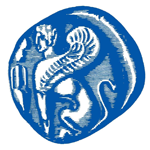|
Level: Type: |
Undergraduate (A-) |
 |
| Instructors: Panayotis Tsakonas | |
| Department: Dept of Mediterranean Studies | |
| Institution: Aegean University | |
| Subject: Other Humanities | |
| Rights: CC - Attribution-NonCommercial-NoDerivatives |